Suppose there are N molecules each of mass m, of an ideal gas in a container. The x component of velocity of a molecule is denoted by ux. The gas is enclosed using a horizontal piston of area A as shown.
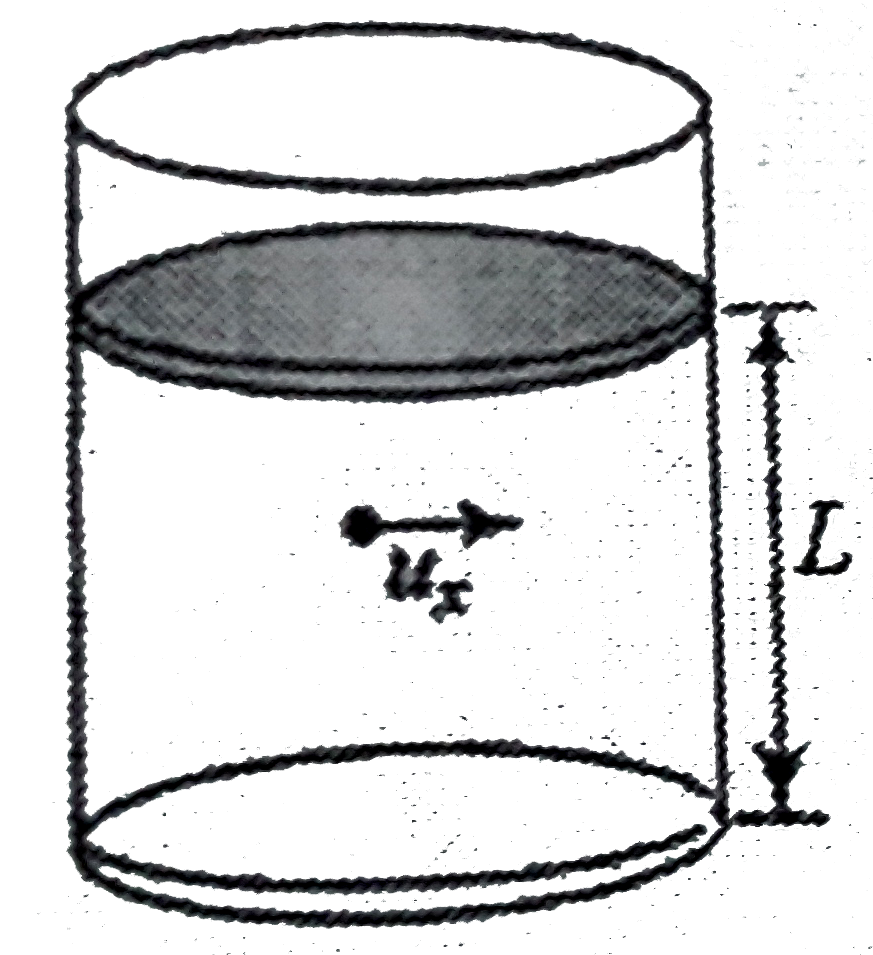
If the piston is moved so as to reduce the volume of gas by half, keeping the temperature of gas constant , we know from the gas law that the pressure will be doubled. On microscopic level the increase in pressure on the piston is because
momentum change per collision is doubled while the frequency of collision remains constant
momentum change per collision remain constant while the frequency of collision is doubled
momentum change per collision and the frequency of collision both are increased
none of these two physical quantities are changed. It is due to some other reason.
The correct Answer is:B
Step by step video, text & image solution for Suppose there are N molecules each of mass m, of an ideal gas in a container. The x component of velocity of a molecule is denoted by u_(x). The gas is enclosed using a horizontal piston of area A as shown. If the piston is moved so as to reduce the volume of gas by half, keeping the temperature of gas constant , we know from the gas law that the pressure will be doubled. On microscopic level the increase in pressure on the piston is because by Physics experts to help you in doubts & scoring excellent marks in Class 11 exams.
Updated on:21/07/2023Topper's Solved these Questions
- KINETIC THEORY OF GASESBook:CENGAGE PHYSICSChapter:KINETIC THEORY OF GASESExercise:Fill in the blanks
Explore 8 Videos
- KINETIC THEORY OF GASESBook:CENGAGE PHYSICSChapter:KINETIC THEORY OF GASESExercise:Multiple correct
Explore 3 Videos
- KINETIC THEORY OF GASESBook:CENGAGE PHYSICSChapter:KINETIC THEORY OF GASESExercise:Compression
Explore 2 Videos
- KINEMATICS-2Book:CENGAGE PHYSICSChapter:KINEMATICS-2Exercise:Exercise Integer
Explore 9 Videos
- KINETIC THEORY OF GASES AND FIRST LAW OF THERMODYNAMICSBook:CENGAGE PHYSICSChapter:KINETIC THEORY OF GASES AND FIRST LAW OF THERMODYNAMICSExercise:Interger
Explore 11 Videos
Similar Questions
An ideal gas is enclosed in a cyclinder with a movable piston on top. The piston has mass of 8000g and an area of 5.00cm2 and is free to slide up and down, keeping the pressure of the gas constant. How much work is done as the temperature of 0.200mol of the gas is raised from 200∘C to 300∘C?
View SolutionThe pressure of a given mass of a gas contained in a vessel at constant temperature is reduced to half. Calculate the change in volume of the gas.
View Solution
Knowledge Check
Suppose there are N molecules each of mass m, of an ideal gas in a container. The x component of velocity of a molecule is denoted by ux. The gas is enclosed using a horizontal piston of area A as shown.
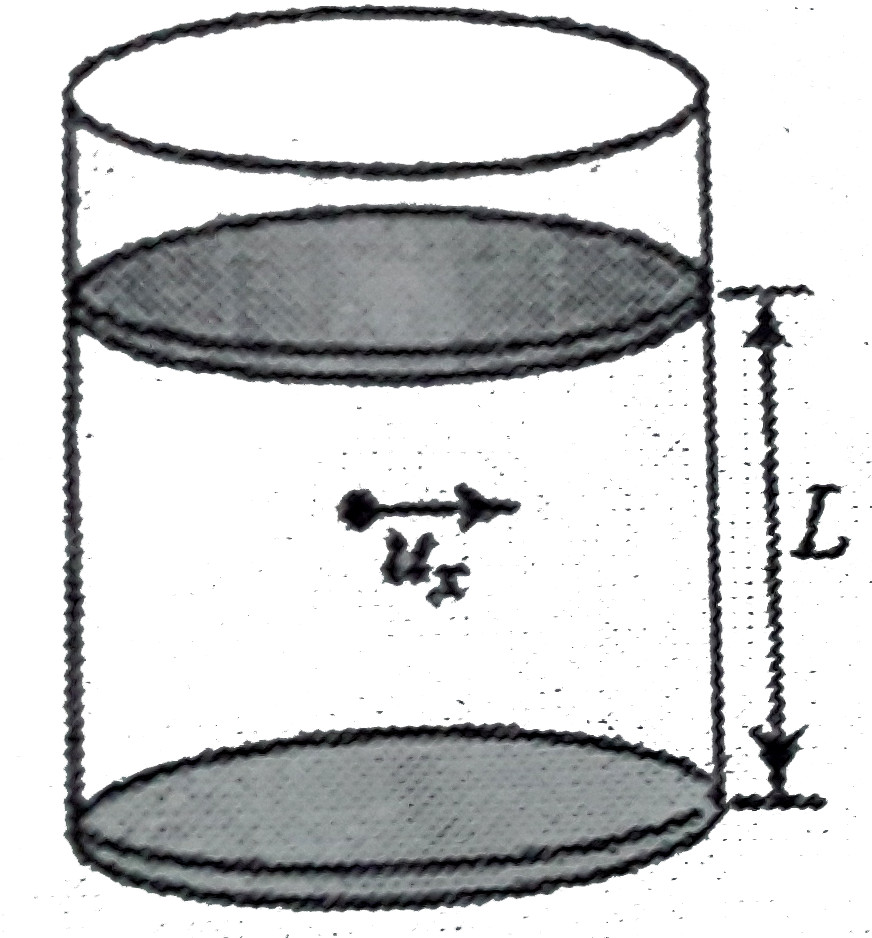
If the piston is moved in so as to reduce the volume of gas by half, keeping the temperature of gas constant, we know from the gas law that the pressure will be doubled. On microscopic level the increase in pressure on the Vertical side walls is becauseAmomentum change per collision is doubled while the frequency of collision remains constantBmomentum change per collision remain constant while the frequency of collision is doubledCmomentum change per collision and the frequency of collision both are increasedDnone of these two physical quantities are changed. It is due to some other reason.Suppose there are N molecules each of mass m, of an ideal gas in a container. The x component of velocity of a molecule is denoted by ux. The gas is enclosed using a horizontal piston of area A as shown.
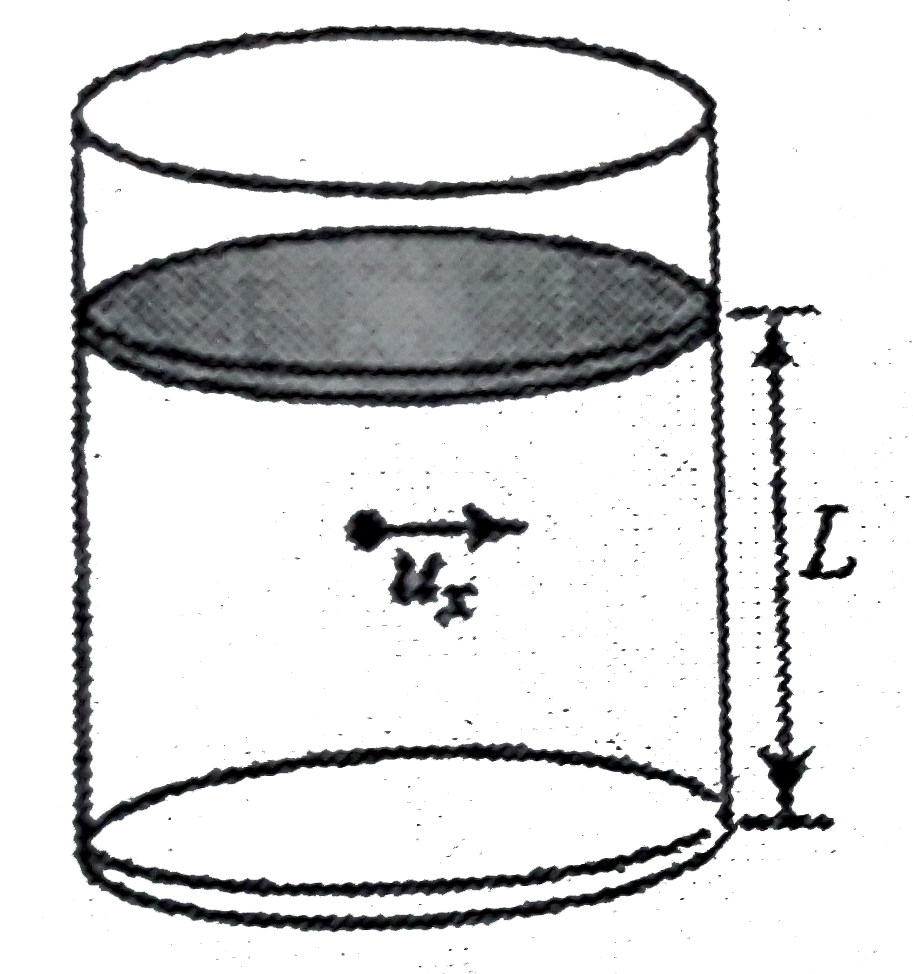
The pressure of the gas isAm(u2x)NALBm(u2x)N3ALC3m(u2x)NALD3m(u2x)ALSuppose there are N molecules each of mass m, of an ideal gas in a container. The x component of velocity of a molecule is denoted by ux. The gas is enclosed using a horizontal piston of area A as shown.
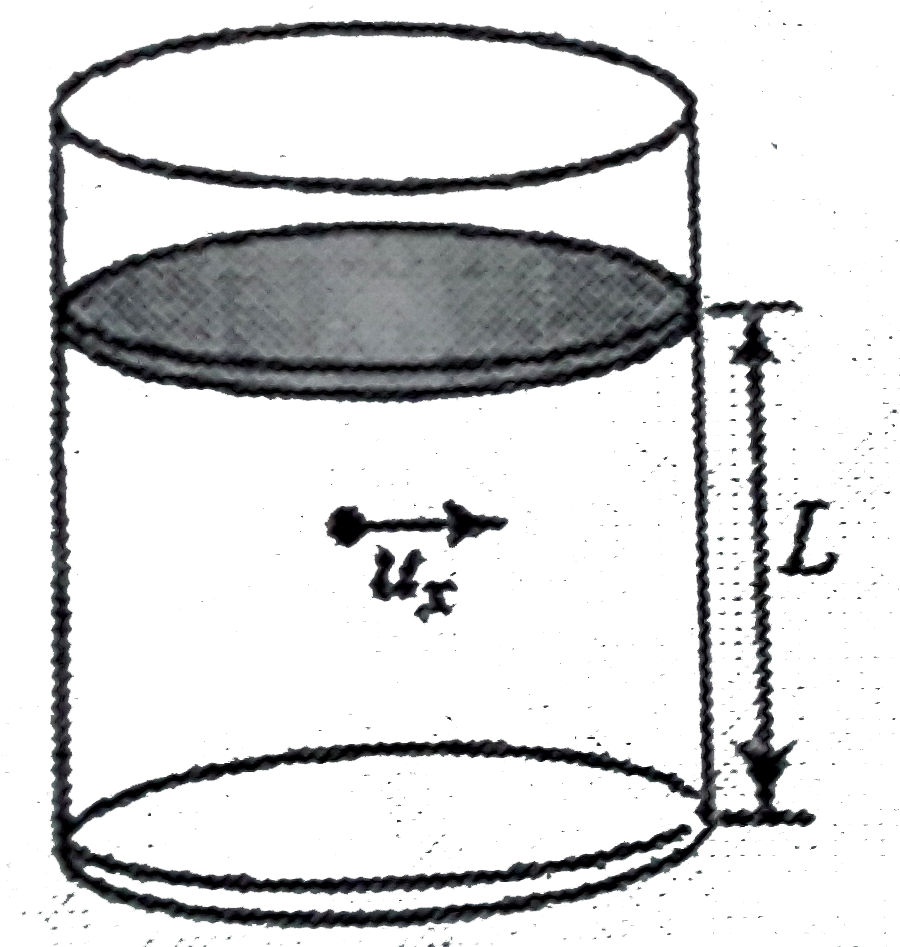
If the temperature of gas is doubled keeping volume constant, we know from the gas law that the pressure will be doubled. On microscopic level this increase in pressure is becauseAmomentum change per collision is doubled while the frequency of collision remains constantBmomentum change per collision remain constant while the frequency of collision is doubledCmomentum change per collision and the frequency of collision both are increasedDnone of these two physical quantities are changed. It is due to some other reason.
The pressure of a given mass of a gas contained in a vessel at constant temperature is reduced to half. Calculte the change in volume of the gas
View SolutionAn ideal gas is enclosed in a cylinder with a movable piston on top of it. The piston has a mass of 800 g and an area of 5.00cm2 and is free slide up and down, keeping the pressure of the gas constant. How much work is done on the gas as the temperature of 0.200 mol of the gas is raised from 20.0∘C to 300∘C ?
View SolutionSuppose there are N molecules each of mass m, of an ideal gas in a container. The x component of velocity of a molecule is denoted by ux. The gas is enclosed using a horizontal piston of area A as shown.
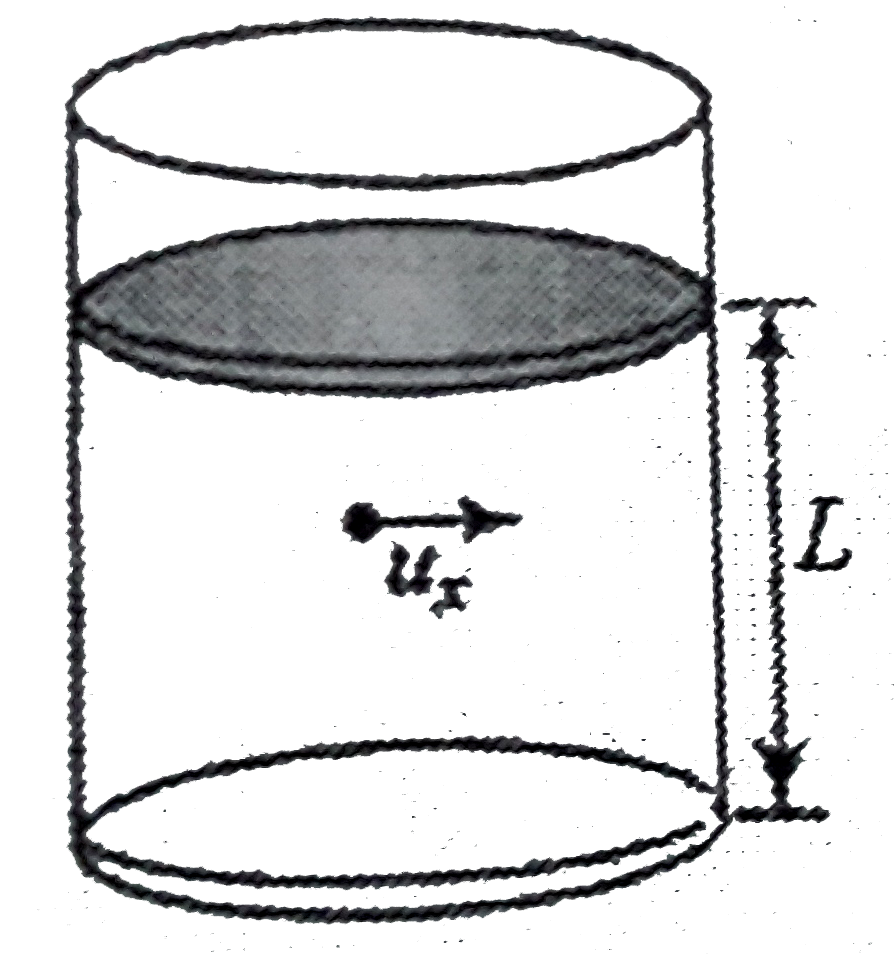
The pressure of the gas can also be written in terms of momentum transferred per collision (Δp) and collision frequency (f) on the wall of area A as
View SolutionA gas is enclosed in a container which is then placed on a fast moving train .The temperature of the gas
View Solution10dm3 of N2 gas and 10dm3 of gas X contain the same number of molecules at the same temperature, the gas (X) may be
View Solution

